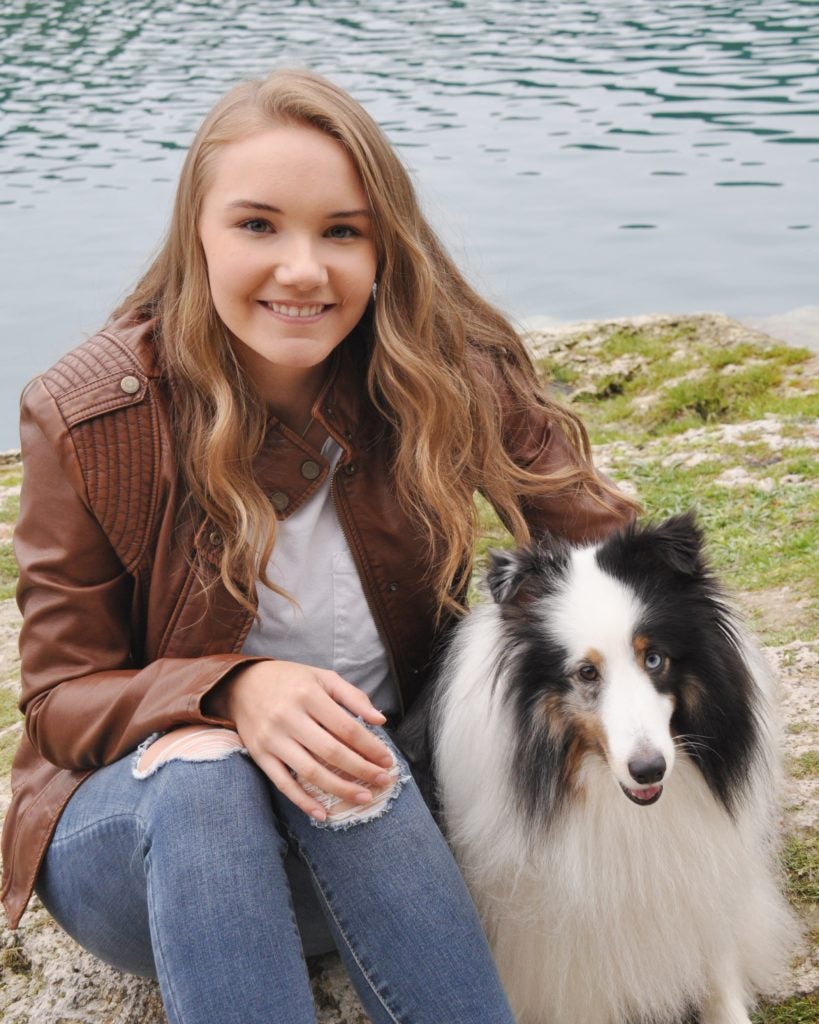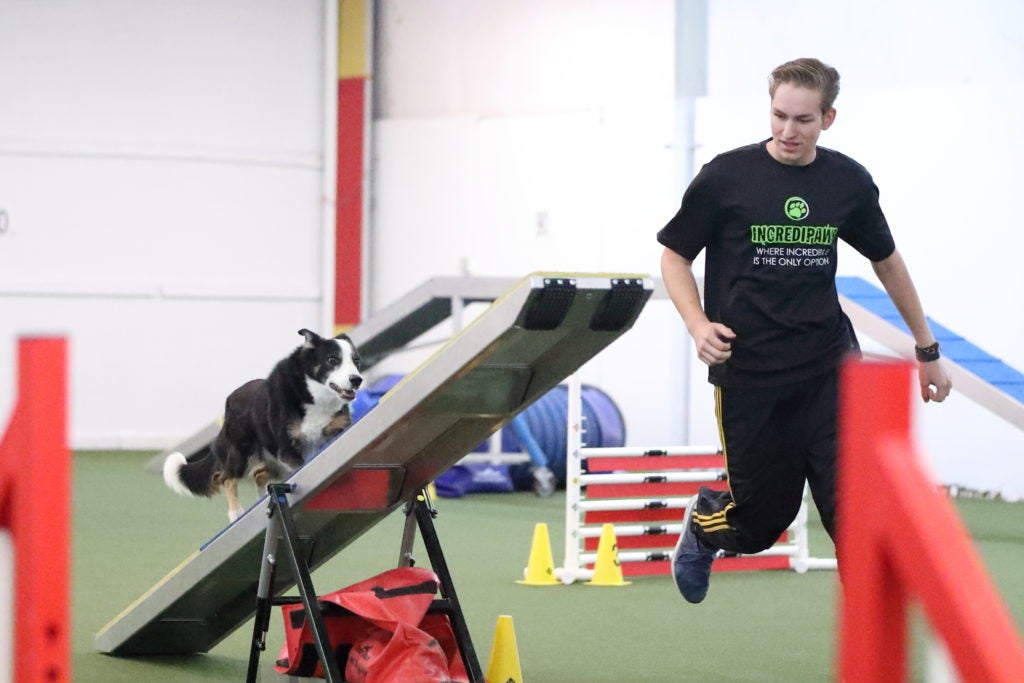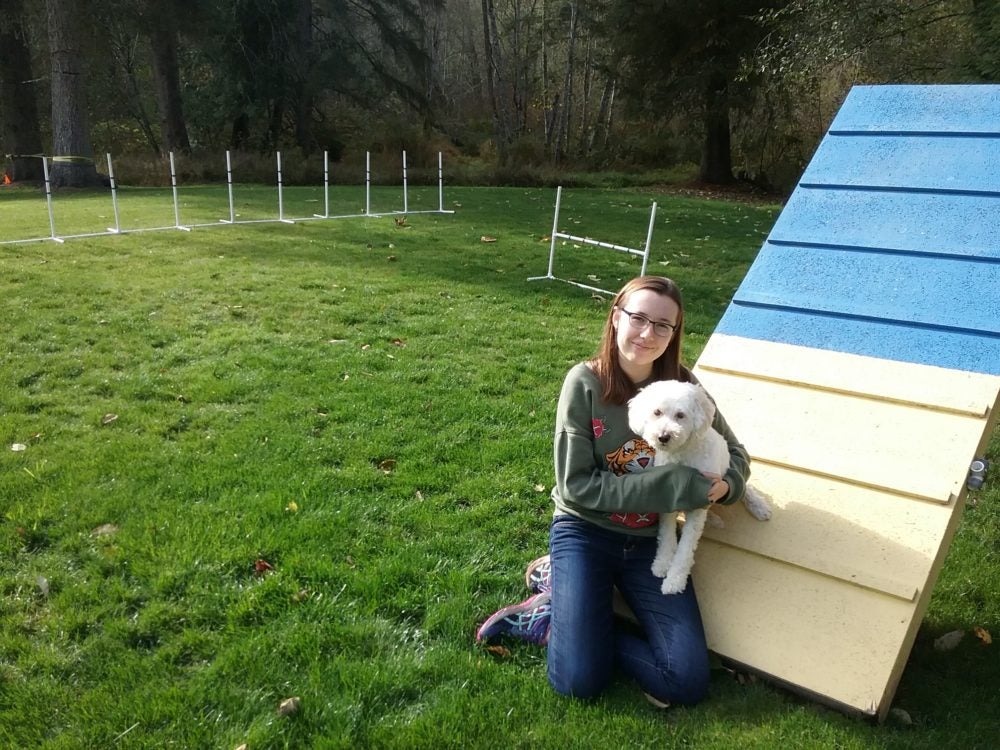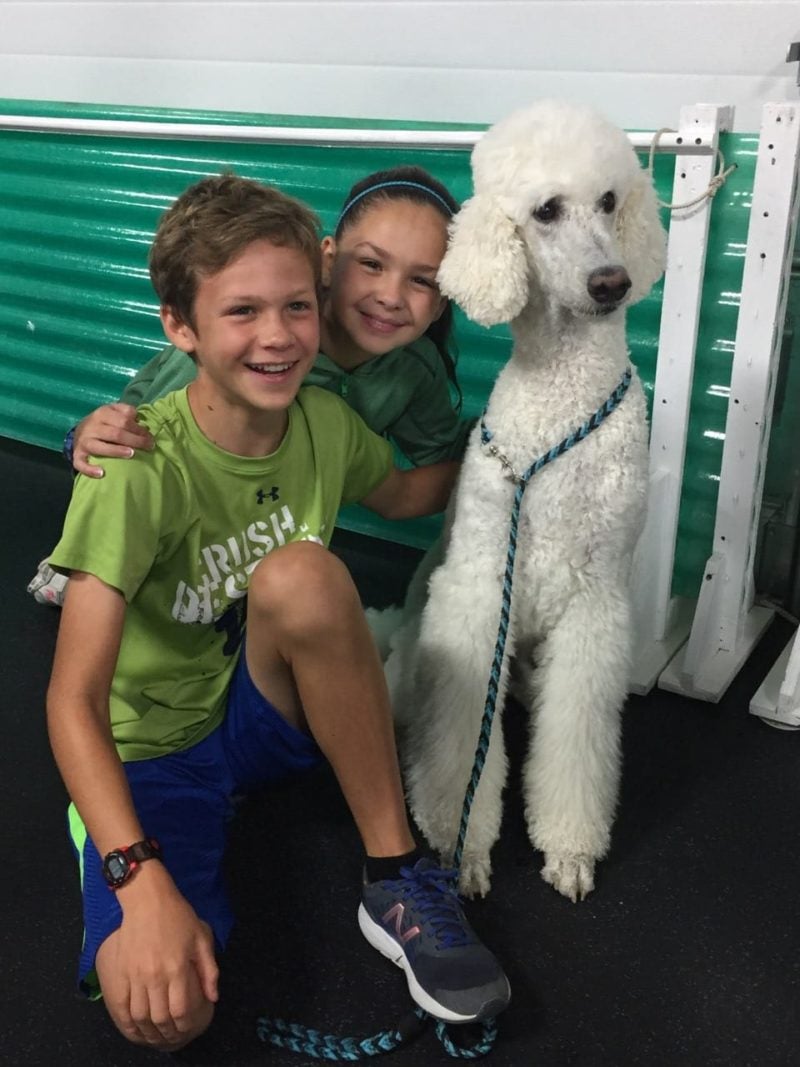
The AKC National Championship presented by Royal Canin will take place Saturday to Sunday, December 15 to 16, 2018, in Orlando, Florida. Tune in to AKC.TV, or download the AKC.TV app on Roku, Apple TV, or AmazonFireTV to catch the live stream starting on Saturday, December 15 at 12 p.m. ET. Watch the TV premiere on New Year’s Day on Animal Planet at 6 p.m. ET. Encore performance airs at 12 a.m. ET.
Agility is an exciting sport to watch, and even more fun to do. But why should adults have all the fun? There are no minimum age requirements for AKC Companion Events like agility. If a Junior (handlers under 18 years of age) can control a dog, he or she can participate too. And the Junior Handlers attending the Eighth Junior Agility Competition in conjunction with the AKC Agility Invitational on December 14, 2018, prove that young handlers can be just as successful. Meet five of the Juniors who will be competing in Orlando and showing the world how kids can excel at dog sports.

Emily Sanborn and Brodie
Seventeen-year-old Emily Sanborn started agility with her Shetland Sheepdog, Brodie, when she was 15. She credits the sport for conquering her shyness. She advises other kids getting started in agility not to get intimidated. “I remember when I first began, I was so nervous because everyone else was so much older and more experienced than me. But now I have become so close to everyone I train with, it’s like we’re family.”
The most rewarding thing for Emily is the strong bond she has forged with Brodie. Agility has also unleashed her leadership skills. Over the summer she helped to instruct a foundations agility class. She also created an agility program at her local SPCA that gives dogs awaiting adoption much-needed mental stimulation while building their trust.

Andrew Clark and Sage
Andrew Clark started training and competing in agility when he was just six years old. Now 17, he says he loves the bond agility creates between him and his dogs. He also feels that participating in agility can build self-confidence. “When you are on the agility course with your dog, there isn’t anyone else out there to help you. You have to be able to make decisions on the fly when your handling may not have gone as you planned.”
His biggest challenge is balancing school and other sports, like varsity bowling, with competing in agility with his Border Collie, Sage. Andrew believes agility has taught him goal setting, whether it’s small goals like training an obstacle, or larger goals like qualifying for a national event. He advises potential agility participants to find a good instructor and to, “have a fun and trusting relationship with your dog.”

Maria Griffin and Biscuit
Maria Griffin and her first dog, Biscuit, have been participating in agility since Maria was 13. Training the All-American Dog has taught her patience. The 17-year-old once spent an entire winter teaching Biscuit to tip a small wobble board because he was terrified of the Seesaw. Although he can test her patience, she explains, “If I am too confusing or if I lose my cool, Biscuit will shut down or walk away from me. The only way to prevent the dog from losing interest is by me being calm, collected, and rewarding him frequently.”
Maria has also learned to be less of a perfectionist. She explains that when you’re working with dogs, you should learn to be happy with every small success. She encourages other kids to jump into the sport and reminds them to keep it positive. “I’ve heard it said about agility: If you’re not having fun, you’re doing it wrong.”

Daniel and Briana Sterling – Sibling Support
Briana Sterling has been doing agility for five years, and the twelve-year-old is currently running her Russell Terrier, Razi. She credits agility with teaching her to be a better person and to be positive with the dogs she works with. That, in turn, has helped her socially. She uses the positive attitude she employs when training, “to develop good relationships with my family and friends.” And that family includes fellow agility competitors Con, her grandfather, and Daniel, her older brother.
Fourteen-year-old Daniel started competing in agility this summer after being inspired by his sister’s performance at the 2017 Junior Agility Competition. Running Carson, the Standard Poodle, has already boosted Daniel’s confidence. Particularly with all the encouragement he receives from other people in the sport. “I always feel good after a run because everyone is so supportive,” he says.
The siblings are guided and inspired by their grandfather, but also help and encourage each other. Daniel explains, “We try to support each other by giving each other tips and cheering each other on as well.”
However, that doesn’t stop a little friendly competition. Daniel says their sibling rivalry has pushed them both to improve. And according to Briana, “We help each other walk the course, and at the end, after we have both completed a course, we love to compare our times to see whose was better.”
Tips for Getting Kids Started in Agility
If your child seems interested in trying agility with the family dog, here are some tips for getting them started:
-
- Get your child involved in the dog’s day-to-day training to build a foundation for more complicated agility behaviors. It will also encourage the dog to listen to and focus on your child.
- Find a trainer or training class that welcomes younger handlers.
- If you already participate in agility, involve your child in your training sessions.
- Tap into the excitement of competition. The atmosphere around the ring is enough to get most kids revved up for training.
- Keep it positive. Just as you would train your dog with positive reinforcement, take the same upbeat approach to encourage your child.

